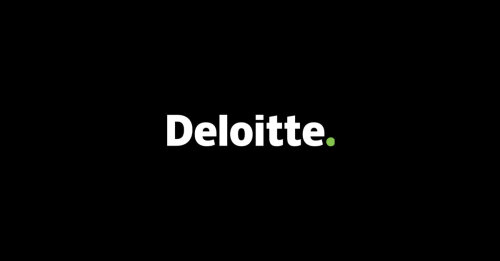Best Cyber Law, Data Privacy and Data Protection Lawyers in Norway
Share your needs with us, get contacted by law firms.
Free. Takes 2 min.
Or refine your search by selecting a city:
List of the best lawyers in Norway
About Cyber Law, Data Privacy and Data Protection Law in Norway:
Cyber law, data privacy, and data protection in Norway are governed by various laws and regulations to protect individuals' data and ensure the security of digital information. The main legislation regulating these areas include the Personal Data Act, the General Data Protection Regulation (GDPR), and the Electronic Communications Act. These laws aim to safeguard individuals' privacy rights, regulate the collection and processing of personal data, and establish measures to prevent data breaches and cybercrimes.
Why You May Need a Lawyer:
You may need a lawyer specializing in Cyber Law, Data Privacy, and Data Protection in Norway if you are facing issues such as data breaches, unauthorized use of personal data, compliance with data protection regulations, drafting privacy policies, or dealing with legal disputes related to cybercrimes. A lawyer can provide guidance, legal advice, and representation to protect your rights and ensure compliance with relevant laws.
Local Laws Overview:
In Norway, the Personal Data Act regulates the collection, processing, and storage of personal data. The General Data Protection Regulation (GDPR) also applies to organizations operating in Norway, ensuring the protection of personal data of EU citizens. The Electronic Communications Act governs issues related to electronic communications and the use of cookies. It is essential to comply with these laws to avoid penalties and legal consequences.
Frequently Asked Questions:
Q: What rights do individuals have concerning their personal data in Norway?
A: Individuals in Norway have the right to access their personal data, request corrections or deletion of their data, and object to the processing of their data in certain situations.
Q: What are the consequences of non-compliance with data protection laws in Norway?
A: Non-compliance with data protection laws in Norway can result in fines, penalties, and reputational damage to organizations. It is essential to adhere to data protection regulations to avoid legal consequences.
Q: Can individuals in Norway transfer their data to other countries?
A: Individuals in Norway can transfer their data to other countries if the recipient country ensures an adequate level of data protection. It is crucial to verify the data protection regulations in the receiving country before transferring personal data.
Q: How can I ensure compliance with data protection laws in Norway?
A: To ensure compliance with data protection laws in Norway, organizations should implement privacy policies, data protection measures, conduct data protection impact assessments, and train employees on data protection regulations.
Q: What should I do in case of a data breach in Norway?
A: In case of a data breach in Norway, organizations must notify the Norwegian Data Protection Authority and affected individuals without undue delay. It is essential to investigate the breach, mitigate the damages, and take preventative measures to prevent future breaches.
Q: Can individuals in Norway request the deletion of their data from databases?
A: Yes, individuals in Norway have the right to request the deletion of their data from databases if the data is no longer necessary for the purposes for which it was collected or if they withdraw their consent to data processing.
Q: What are the key principles of data protection under Norwegian law?
A: The key principles of data protection under Norwegian law include lawfulness, fairness, transparency, purpose limitation, data minimization, accuracy, storage limitation, integrity, and confidentiality.
Q: How can I protect my personal data online in Norway?
A: To protect your personal data online in Norway, you should use strong passwords, enable two-factor authentication, avoid sharing sensitive information on insecure websites, update your software regularly, and be cautious of phishing emails and scams.
Q: Are there any specific rules for the use of cookies in Norway?
A: Yes, the Electronic Communications Act in Norway regulates the use of cookies and requires website operators to obtain user consent before storing or accessing cookies on users' devices.
Q: What are the rights of data subjects under the GDPR in Norway?
A: Data subjects in Norway have rights under the GDPR, including the right to access their data, rectify inaccuracies, delete data, restrict processing, data portability, object to processing, and not be subject to automated decision-making.
Additional Resources:
For more information on Cyber Law, Data Privacy, and Data Protection in Norway, you can visit the Norwegian Data Protection Authority (Datatilsynet) website. They provide guidance, resources, and updates on data protection regulations in Norway. You can also seek assistance from legal firms specializing in Cyber Law and Data Protection for personalized advice and legal representation.
Next Steps:
If you require legal assistance in Cyber Law, Data Privacy, and Data Protection in Norway, it is advisable to consult with a lawyer specializing in these areas. They can assess your situation, provide legal advice, help you navigate data protection regulations, and represent you in legal proceedings if necessary. Remember to stay informed about changes in data protection laws and implement measures to protect your personal data and comply with relevant regulations.
Lawzana helps you find the best lawyers and law firms in Norway through a curated and pre-screened list of qualified legal professionals. Our platform offers rankings and detailed profiles of attorneys and law firms, allowing you to compare based on practice areas, including Cyber Law, Data Privacy and Data Protection, experience, and client feedback.
Each profile includes a description of the firm's areas of practice, client reviews, team members and partners, year of establishment, spoken languages, office locations, contact information, social media presence, and any published articles or resources. Most firms on our platform speak English and are experienced in both local and international legal matters.
Get a quote from top-rated law firms in Norway — quickly, securely, and without unnecessary hassle.
Disclaimer:
The information provided on this page is for general informational purposes only and does not constitute legal advice. While we strive to ensure the accuracy and relevance of the content, legal information may change over time, and interpretations of the law can vary. You should always consult with a qualified legal professional for advice specific to your situation.
We disclaim all liability for actions taken or not taken based on the content of this page. If you believe any information is incorrect or outdated, please contact us, and we will review and update it where appropriate.
Browse cyber law, data privacy and data protection law firms by city in Norway
Refine your search by selecting a city.









